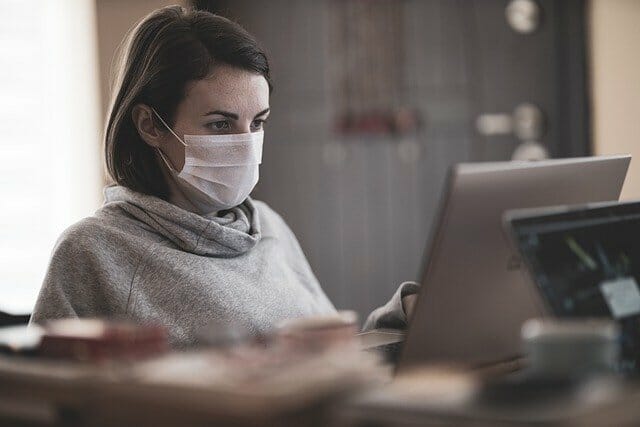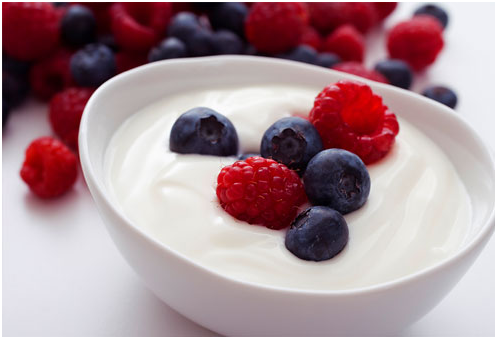How To Keep Your Health Goals Going During A Pandemic
Remember those health goals you set yourself back in January? It seems like a lifetime ago now doesn’t it and I’m guessing that the vast majority of you aren’t quite where you were hoping to be. But then that’s fair enough, because staying on track of our goals is hard enough at the best of times, but throw in a global pandemic and it’s no wonder we’re struggling.
We’ve all had to make sacrifices this year, to change the way we lead our lives, how we work, how we exercise, how we go about our daily business; it’s been tough. And these changes have impacted us in ways we could never imagine, forcing us to reassess our lifestyles and to be much kinder on ourselves, accepting that some days are good, others less so.
Whilst achieving those new year health goals may have slipped down your priority list (and understandably so) it’s important to remember that your health is more important than ever right now and you should therefore do whatever you can to try and keep on track. This isn’t the time to be making huge changes and it isn’t the time to be piling the pressure on. This is about looking after yourself and we’ve got some helpful tips to get you right back on track again.
Keep On Track With Your Nutrition
You might usually be the most disciplined person on the planet, but where stress and boredom levels have been higher than normal it’s no surprising that at times it may have felt as though food was the only treat you’ve got left. And let’s face it, fruit and veggies just don’t cut it in the treat department right now.
There’s nothing wrong in cutting yourself some slack for a while, but boredom snacking and anxious over eating is not the answer. However, habits can be hard to break especially bad habits, which is why sometimes you need a helping hand. Check out InsideTracker.com to discover an ultra-personalized nutrition system that analyzes your blood, DNA and lifestyle to help you optimize your body and reach your goals.
By taking a sample of your blood they are able to analyse it, looking closely at your DNA to see what’s going on in that body of yours. This information is absolutely crucial in not only understanding what your body is like now, but also in terms of moving forwards and the steps you can take to do something about any issues you might be experiencing. For example, if you feel tired and lacking in energy a lot of the time it could point to the fact that your body is deficient in certain nutrients and by having this information it better equips you to do something about it, whether that be to change your diet or perhaps to start taking supplements.
Listen, we’re not here to tell you to stop eating chocolate and cake, because honestly that’s a pretty miserable existence. But simply by making some small changes to your daily diet combined with a knowledge of what your body needs you can quite easily keep on track of your nutrition throughout lockdown and beyond.
![]()
Stay Fit And Active
Our usual gym workouts, exercise classes and team sports have been hugely disrupted this year, which means any regular fitness programmes you’ve had in place have been thrown all out of whack. But that doesn’t mean we need to give up on our fitness altogether, in fact you could argue that now is more important than ever to keep moving, both for the sake of our physical and our mental health.
One thing many of us probably don’t give much thought to is the health of our body on the inside. As someone who regularly works out you might be used to receiving the odd compliment every now and again about how you look younger than your age, but have you ever stopped to think about your inner age – does the health of your body on the inside match up to its appearance on the outside?
InsideTracker’s new InnerAge 2.0 plan can cleverly compare certain biomarkers in your body to those of other people who fall within your age bracket and are the same sex as you to work out how close you are to this average. This in turn can then tell you whether your inner body is younger, older, or expected for your actual age. Now you might be thinking, “oh gosh, I’m not sure I can handle being told my inner body is older”, and I totally get that, but this isn’t an irreversible thing. By discovering this information, it allows you to make a plan to go forwards with the main goal being to reduce that age back down. And this can be done, by making changes to your nutrition and increasing your activity levels.
Exercising during a pandemic is more difficult for sure, but it is by no means impossible and virtual fitness has been our saviour during lockdown, with households all around the country tuning in to the likes of Joe Wicks for their fitness fix each day. And whilst it has meant a change to our usual routine, let’s put a positive spin on this and look at the benefits. Changing how we workout is actually a really good thing to do every now and again, as it ensures different areas of the body are used. And there are plenty of activities that can be done either from the comfort of your own home or outdoors depending on how strict the restrictions are in your area.
From outdoor socially distanced bootcamps, buddy running, walks with the family, cycling, Zoom workouts, You Tube yoga sessions, and using online personal trainers, there is really no excuse for letting our fitness flop. And the best way to keep on top of things is to literally keep track of what you’re doing. This could be in the form of an app like Strava for example, or perhaps with a fitness tracker watch, or even good old fashioned pen and paper. Whatever you use, simply logging any kind of movement you do each day will motivate and inspire you to keep on doing what you’re doing.

Remember To Look After Your Mental Health Too
There’s no question that our mental health has suffered this year. The coronavirus pandemic has increased our stress levels and made us anxious, lonely and depressed. Let’s face it, it has been thoroughly miserable at times. But thankfully there are things we can do to keep our mental health in check.
Keeping on track with our nutrition and exercise automatically helps with our mental wellbeing. Eating well ensures we receive all the nutrients our bodies need to function well in both a physical and emotional sense. And of course it’s well known that exercise, particularly when done outdoors, is great for improving our mood. Working out helps increase levels of endorphins, dopamine, adrenaline and endocannabinoid, the ‘happy’ brain chemicals.
Natural light also really helps to improve alertness and mood and even at this time of year when there is less sun, it exposes us to a bit of vitamin D, which has been shown to help with depression. Try to start the day with a run or a long walk outdoors in a place that you love and that brings you joy – we promise it will help. And if you can’t get outside, for whatever reason, make sure you at least open a window and take some big lungfuls of that glorious fresh air.
It’s important also to stay in contact with people and although that may be hard due to the restrictions, even if you can’t meet up with someone in real life it’s easy enough to pick up the phone, Facetime them or even just send a quick message. Knowing there are people out there is a huge deal and it can be enough to lift your mood and put a smile on your face. The important thing is to keep talking; we are all in the same boat despite our journeys being different, and being able to talk through what you’re feeling or the struggles you may be having is a positive step towards your mental wellbeing.

Consider What You’re Drinking
Research from the independent alcohol education charity Drinkaware has shown that more than a fifth of adults in the UK are consuming more alcohol as a consequence of the coronavirus pandemic. And it’s not difficult to work out why, as many people use alcohol as a crutch tRemebero help them through tricky times. But we all know that too much alcohol is detrimental to our health and that while it may ease stress levels for a while, this is only short lived and the after effects the following day is never good.
If you’re concerned about the amount of alcohol you’re currently consuming try and make a concerted effort to at a bare minimum reduce it so that you have one day on one day off. However, in an ideal world you would be much better off saving your alcohol intake for just 2 times a week, say at the weekend for example. It would be a good idea to come up with a replacement drink, such as sparkling water mixed with a cordial or a tonic water without the gin, for those booze free evenings, so that you still feel as though you’re having a different drink to what you would drink in the daytime.
And of course it’s not just alcohol that’s the culprit here, our caffeine consumption has gone up too and that is making us feel just as bad. Too much caffeine can affect us in such a way that our anxiety levels increase, our sleep patterns are disrupted, it can cause digestive issues and raise blood pressure levels, all of the things we really could do without right now!
Try and drink plenty of water to ensure you are fully hydrated and to help flush your system of any unwanted toxins. This act alone will help keep you on track and help some of the other areas such as fitness motivation and food choices slot into place.

How we’re living at the moment is not forever and while it may feel as though a lot of things are out of our control there are still many things that we can control. Keeping on track of all of the elements mentioned in this article is crucial to good health and wellbeing. Pandemic or no pandemic, only we can make the right choices about how we treat our mind, body and soul. It is up to you.
















